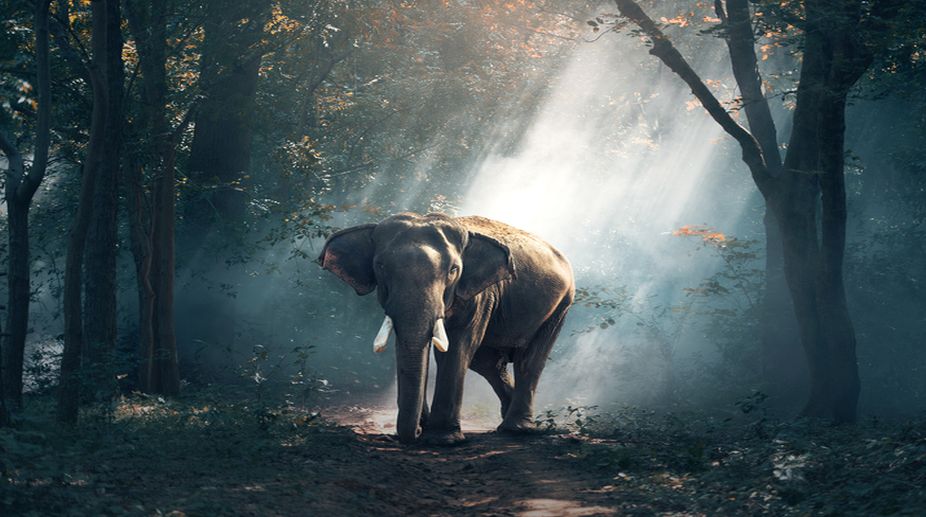Now, a bull elephant claims life at Barjora village
Within just one-and-a-half months, the wild elephants claimed the life of another man at Barjora village here today.

(Photo: Getty Images)
More than three quarters of nearly 3,000 elephants used for the entertainment of tourists in India and other Asian countries are kept in “severely cruel” conditions, a new report said today.
The study has found that in India 116 elephants continue to endure abuse to entertain tourists at Ajmer Fort in Rajasthan.
Elephants are also widely abused in Kerala in temples and for tourist attraction purposes, while the jumbos are exploited in national parks and sanctuaries for giving rides to tourists to view wildlife.
Advertisement
Most of India's 3,500 captive elephants are used in some form of riding activity, according to the report by the World Animal Protection.
Countries in Asia, including India, continue to grow the captive elephant industry for elephant rides and performances to meet “irresponsible” tourist demands, it said.
In 2015 the number captive elephants in India was estimated to be between 3,000 and 4,000.
In comparison, India is home to up to about 30,711 wild elephants as per the last government census.
This is by far the largest portion of the Asiatic elephant population, with up to 60 per cent of the global wild population, the report said.
“The situation for captive elephants (in India) is concerning, including their use for tourist rides and illegal trade,” the report said.
The study, conducted between November 2014 and May 2016, assessed the scale of the captive Asian elephant tourism industry across Thailand, Sri Lanka, Nepal, and parts of India, Laos and Cambodia.
The report said that Thailand is the main concern using twice as many elephants in tourism than all the other Asian countries combined.
Tourism to Thailand doubled from 15.9 million to 32.6 million visitors between 2010 and 2016, contributing to a 30 per cent rise (1,688 to 2,198) in elephants held in captivity for tourist activities.
The research also found that several venues in Thailand cater to thousands of visitors daily, generating estimated profits of tens of thousands of dollars per month from exploiting Asian elephants – an endangered species.
Gajender K Sharma, India Country Director at the WAP, said the cruel trend of elephants being used for rides and shows was growing and that there was a need for tourists to know that many of these elephants were taken from their mothers as babies, forced to endure harsh training and suffer poor living conditions throughout their life.
“There is an urgent need for tourist education and regulation of wildlife tourist attractions worldwide.
“Venues that offer tourists a chance to watch elephants in genuine sanctuaries are beacons of hope that can encourage the urgently-needed shift in the captive elephant tourism industry,” he said.
WAP urged upon the Indian government to phase out elephant rides in the wake of the ongoing case in the Supreme Court and implement a humane and sustainable solution to it.
In 2014, WAP revealed that globally 53 per cent of the people felt that riding an elephant was acceptable and 40 per cent found it unacceptable, compared to 2017, when only 44 per cent thought elephant riding was acceptable and 49 per cent found it unacceptable.
Advertisement